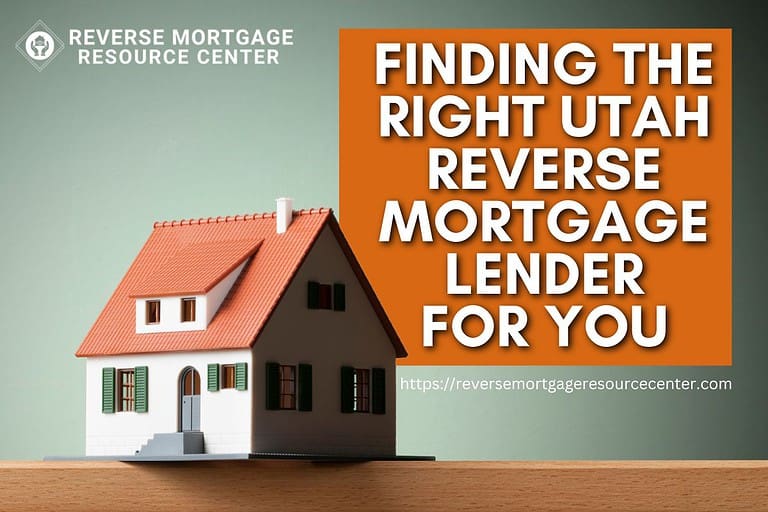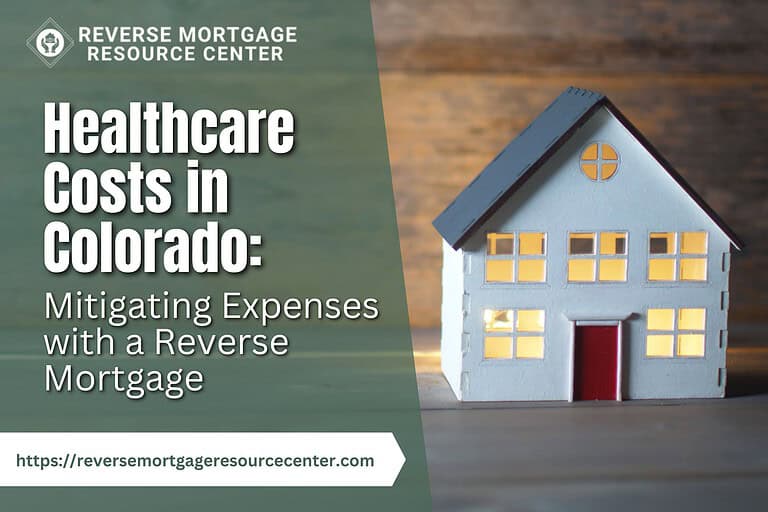Finding the Right Arizona Reverse Mortgage Lender for You
As you approach your retirement years, financial stability and security become paramount. A reverse mortgage can be a powerful financial tool that enables seniors to tap into the equity they’ve built in their homes. Arizona, with its beautiful landscapes and vibrant communities, is a popular place for retirees to settle down. If you’re considering a reverse mortgage in Arizona, finding the right lender is essential. In this guide, we will delve into the world of reverse mortgages in Arizona and provide you with valuable insights on how to choose the best lender to suit your needs.
Understanding Reverse Mortgages
Before we dive into finding the right reverse mortgage lender in Arizona, let’s first understand what a reverse mortgage is and how it works.
A reverse mortgage is a loan designed specifically for seniors aged 62 and older. Unlike a traditional mortgage, where you make monthly payments to the lender, a reverse mortgage allows you to receive funds from the lender. These distributions can be a lump sum, a line of credit, fixed monthly installments, or a combination of these options.
The unique feature of a reverse mortgage is that it enables homeowners to convert a portion of their home equity into readily accessible income tax-free funds without having to sell their homes or make monthly mortgage payments. The loan is repaid when the homeowner no longer lives in the home, typically through the sale of the property.
Why Consider a Reverse Mortgage in Arizona
Arizona offers a desirable retirement destination for many seniors. The warm climate, diverse cultural scene, and many recreational activities make it an attractive place to spend your golden years. Here are some reasons why a reverse mortgage in Arizona could be beneficial:
1. Financial Security: A reverse mortgage can provide access to an additional source of money, which can be crucial for covering living expenses, medical bills, and other unforeseen costs.
2. Homeownership Preservation: A reverse mortgage allows you to stay home while accessing your home equity, preserving your independence and comfort.
3. No Monthly Mortgage Payments: You won’t have to make monthly mortgage payments, reducing your financial stress and improving your cash flow.
4. Tax-Free Income: The money you receive from a reverse mortgage is typically tax-free, giving you more purchasing power.
5. Flexibility: You can choose how you want to receive the funds, whether as a lump sum, line of credit, or monthly installments, depending on your needs.
Now that you understand the benefits of a reverse mortgage in Arizona, let’s discuss how to find the right lender to help you navigate this financial journey.
Choosing the Right Arizona Reverse Mortgage Lender
Finding the right reverse mortgage lender in Arizona is a crucial step in securing your financial future. To make an informed decision, consider the following factors when choosing your lender:
1. Experience and Reputation
Look for a lender with a strong track record in the industry. An experienced lender will likely provide you with the expertise and guidance you need. Research their reputation by reading reviews and seeking referrals from friends, family, or financial advisors. Look for lenders with a history of serving the Arizona community and a reputation for integrity and customer satisfaction.
2. Local Expertise
Select a lender who has a deep understanding of the Arizona housing market. Local lenders are well-versed in the unique real estate and economic factors that can affect your reverse mortgage. They can provide insights specific to your Arizona home, ensuring the best possible outcome.
3. Licensing and Credentials
Verify that your lender is licensed and accredited. The U.S. Department of Housing and Urban Development (HUD) provides a list of approved reverse mortgage lenders. Check if your chosen lender is on this list, as it indicates their reliability and compliance with federal regulations.
4. Loan Offerings
Different lenders may offer various reverse mortgage products, including Home Equity Conversion Mortgages (HECMs) and proprietary reverse mortgages. Compare the loan offerings and discuss which one is most suitable for your financial situation and goals.
5. Interest Rates and Fees
Carefully examine the interest rates and fees associated with the reverse mortgage. Compare these details among different lenders to ensure you get the most competitive terms. Remember that lower fees and interest rates can save you money in the long run.
6. Customer Service and Support
Exceptional customer service is paramount. Choose a lender who is responsive, attentive to your needs, and willing to guide you through the process. Ask questions and gauge their willingness to provide information and support.
7. Transparency and Education
The best lenders will prioritize transparency and education. They will take the time to explain the terms, conditions, and implications of your reverse mortgage. Ensure that your lender is committed to your understanding of the loan.
8. Financial Assessment
Your lender should conduct a financial assessment to determine your ability to meet ongoing home-related expenses, such as property taxes and homeowners’ insurance. This step is required for HECM loans and ensures you can continue to live comfortably in your home.
9. Counseling Requirement
Federal regulations mandate that you attend a reverse mortgage counseling session to discuss the risks and benefits of this financial arrangement. A reputable lender will guide you through the counseling process and help you schedule a session with a HUD-approved counselor.
10. Comparison Shopping
Don’t rush your decision. Take your time to compare multiple lenders and their offers. This will help you find the most favorable terms for your unique situation.
Red Flags to Watch Out For
While there are many reputable reverse mortgage lenders in Arizona, there are also unscrupulous actors in the industry. Be vigilant and watch out for the following red flags:
1. High-Pressure Sales Tactics: If a lender pushes you into a decision with urgency or aggressive tactics, it’s a warning sign. Take your time to make an informed choice.
2. Unrealistic Promises: Be cautious if a lender makes promises that sound too good to be true. Reverse mortgages have costs and risks that should be clearly explained.
3. Hidden Fees: Some lenders may not disclose all fees upfront. Always ask for a clear breakdown of all costs associated with the loan.
4. Unlicensed Lenders: Avoid dealing with lenders who are not properly licensed or accredited. It’s essential to work with professionals who adhere to industry standards.
5. Lack of Transparency: If a lender is evasive or unwilling to answer your questions, it’s a sign that they may not have your best interests at heart.
The Reverse Mortgage Process
Now that you have a better understanding of what to look for in a lender and what to avoid, let’s briefly walk through the reverse mortgage process:
1. Education: Start by educating yourself about reverse mortgages. Understand the types of reverse mortgages available and how they work. This knowledge will empower you to make informed decisions.
2. Counseling: Attend a reverse mortgage counseling session with a HUD-approved counselor. This is a mandatory step to ensure you understand the implications of a reverse mortgage.
3. Lender Selection: Choose a reputable reverse mortgage lender in Arizona, considering the factors discussed earlier.
4. Application: Submit your reverse mortgage application, and the lender will review your eligibility.
5. Financial Assessment: The lender will perform a financial assessment to determine your ability to cover ongoing property-related expenses, such as property taxes, homeowners’ insurance, and home maintenance costs. This assessment helps ensure that you can continue to live comfortably in your home.
6. Appraisal: An appraisal of your home’s value will be conducted to determine the amount of equity you can access. The appraisal process is essential in establishing the baseline for your reverse mortgage.
7. Underwriting and Approval: The lender will review your financial documents and appraisal results to underwrite the loan. Once approved, you’ll receive a Loan Estimate and Closing Disclosure, detailing the terms and costs of the reverse mortgage.
8. Closing: You’ll sign the loan documents at the closing, typically held at a title company or attorney’s office. During the closing, you’ll choose how to receive the loan proceeds, whether as a lump sum, line of credit, or monthly installments.
9. Disbursement of Funds: After the closing, the funds will be disbursed according to your chosen option. You can start using the funds to meet your financial needs.
10. Repayment: Repayment of the reverse mortgage occurs when you no longer live in the home as your primary residence, typically due to moving, selling, or passing away. At that point, the loan balance becomes due and can be paid off by the home sale or your heirs.
Frequently Asked Questions
Here are some common questions that seniors in Arizona often have when considering a reverse mortgage:
1. Is my home eligible for a reverse mortgage in Arizona?
To be eligible for a reverse mortgage, your home must be your primary residence and meet certain HUD requirements, including a single-family home or a multi-unit property with at least one unit occupied by the borrower.
2. Do I need a good credit score to qualify for a reverse mortgage?
Credit scores are not a primary factor in reverse mortgage eligibility. Instead, lenders assess your ability to cover property-related expenses, like property taxes and insurance.
3. What happens to my spouse if I pass away or move out of the home?
If both spouses are on the reverse mortgage and one spouse passes away or moves out of the home, the surviving spouse can continue to live in the home without having to repay the loan, as long as they meet certain requirements.
4. How much money can I receive from a reverse mortgage?
The amount you can receive from a reverse mortgage depends on factors such as your age, the value of your home, current interest rates, and the type of reverse mortgage you choose. It’s best to consult with a lender to get a personalized estimate.
5. Can I lose my home with a reverse mortgage?
With a reverse mortgage, you retain ownership of your home. However, it’s essential to meet all loan requirements, including covering property-related expenses, to avoid the risk of foreclosure.
REVERSE MORTGAGE RESOURCE CENTER ~LIVE LIFE ON YOUR TERMS~
Our Lending Team has been serving our clients since 2004. We are passionate about serving our clients with integrity to help them achieve their financial goals.







